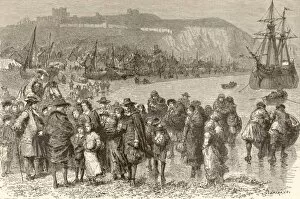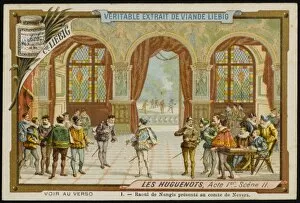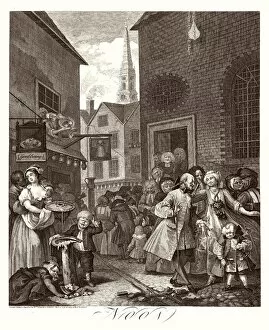Huguenots Collection (#4)
The Huguenots, a group of French Protestants, played a significant role in the tumultuous history of France during the 16th and 17th centuries
For sale as Licensed Images
Choose your image, Select your licence and Download the media
The Huguenots, a group of French Protestants, played a significant role in the tumultuous history of France during the 16th and 17th centuries. Their struggles and triumphs are captured in various works of art and historical events. One such depiction is William Hogarth's famous series "Four Times of the Day, " where he portrays different scenes from everyday life in London. In his painting "Noon, " we see a bustling street filled with people from all walks of life, including Huguenot immigrants who sought refuge in England after facing persecution in their homeland. The Huguenots' plight can be traced back to the French Religious Wars that ravaged France between 1562 and 1598. The Siege of La Rochelle was one such event where Cardinal Richelieu led an army against the Protestant stronghold. This historic moment has been immortalized through engravings like "Cardinal Richelieu at the Siege of La Rochelle. " Another tragic episode etched into history is the St Bartholomew's Day Massacre, which took place on August 24, 1572, resulting in thousands of Huguenot deaths across France. Engravings depicting this horrifying event serve as reminders of religious intolerance and violence during that era. Despite these hardships faced by the Huguenots, they managed to leave their mark wherever they settled. One notable example is Fournier Street in London's Shoreditch district, once home to many Huguenot silk weavers who brought their skills and craftsmanship to England. Their influence also extended beyond Europe; Franschhoek Valley in South Africa stands as a testament to their heritage with its Huguenot Memorial commemorating those who fled religious persecution and established new lives there. Through art, engravings, historical events like sieges and massacres, as well as tangible remnants left behind by these resilient people, the story of the Huguenots continues to be told.












